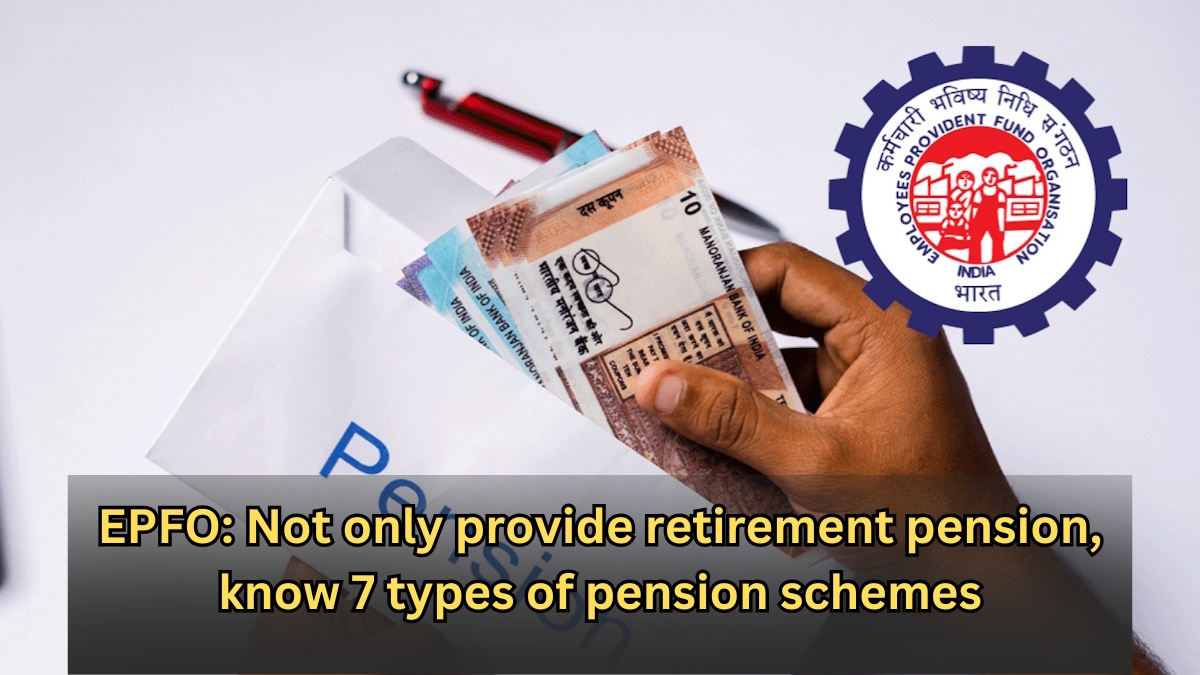Employees Provident Fund Organization (EPFO) provides financial and social security to government and private sector employees after retirement. It is not just a government institution, but also a strong system to secure the future of employees. Facilities like Provident Fund (PF), Insurance and Pension are provided under EPFO.
How does EPFO work?
For all the facilities of EPFO, employees have to contribute 12% of their monthly salary, and the employer (company) also deposits the same amount in EPF. This fund is returned to the employees in the form of pension after retirement. But do you know that EPFO provides not only retirement pension, but also 7 types of pension schemes?
7 types of pension schemes of EPFO
Retirement Pension (Superannuation Pension)
If an employee contributes to EPFO for at least 10 years and retires after the age of 58, he gets regular pension.
The amount of pension depends on how much money is deposited in the employee’s account.
Early Pension
If an employee retires before 58 years, he will get pension, but it will be reduced by 4% every year.
Pension can be claimed even after the age of 50, but a deduction of 4% will be applicable in this also.
Widow or Child Pension
If an employee dies, his wife and children get pension.
For this, there is no compulsion to contribute to EPFO for 10 years, the family of the employee who invests even for one year will get this benefit.
Children get this pension till the age of 25 years.
Pension for parents (Nominee Pension)
If the deceased employee has no wife or children, then his parents (nominee) get pension.
If the father has died, then the mother will continue to get this pension for life.
Orphan Pension
If both an employee and his wife die together, then their children get pension till the age of 25 years.
After 25 years it is considered that they are now able to earn on their own, so the pension is stopped.
Disability Pension
If an employee becomes disabled in an accident and becomes unable to work, then he gets a lifetime pension from EPFO.
There is no age limit in this scheme.
Unified Pension Scheme 1 April 2025: Who Benefits & How Much Pension Will You Get?
